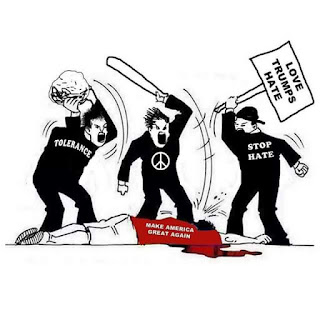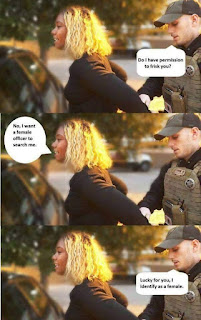Both Italy and Malta have refused to allow a migrant rescue boat into its ports.— dwnews (@dwnews) June 11, 2018
On the vessel:
629 people.
123 unaccompanied minors.
Seven pregnant women.https://t.co/6HvAZ1hvXI
#UPDATE The UN refugee agency calls on Italy and Malta to immediately allow a boat carrying hundreds of migrants to dock, describing the situation as "an urgent humanitarian imperative" https://t.co/nAM8mtFw6q pic.twitter.com/lBTd0ZcGCj— AFP news agency (@AFP) June 11, 2018
Spanish port to accept 629 stranded migrants snubbed by Italy https://t.co/y8cV4WqN8V— Sky News (@SkyNews) June 12, 2018
Hardline interior ministers of Germany, Austria and Italy form alliance to protect borders - in defiance of Merkel https://t.co/QZmz4rac2K— Daily Mail Online (@MailOnline) June 13, 2018
The Daily Mail, UK
written by George Martin and AFP staff
Wednesday June 13, 2018
The hardline interior ministers of Austria, Germany and Italy have formed an 'axis of the willing' to combat illegal immigration, Austrian Chancellor Sebastian Kurz said Wednesday, escalating a Europe-wide row over the issue.
The announcement by Kurz in Berlin after talks with German Interior Minister Horst Seehofer marks a shot across the bow at Chancellor Angela Merkel, who is trying to pull together a deal for EU cooperation on placing asylum seekers.
Seehofer - who is locked in an open migration feud with Merkel that is threatening the stability of her coalition government - said that he and his far-right Austrian and Italian counterparts, Herbert Kickl and Matteo Salvini, formed their alliance this week.
Their cooperation would extend to 'issues of security and terrorism', he said, but did not offer specifics on what it would entail.
The news comes as Merkel called for tolerance amid a wave of support for anti-immigration parties across Europe, with the Chancellor saying the current political crop's migration policy would act as a 'litmus test' for the future of the continent.
Kurz, whose country assumes the EU's rotating presidency on July 1, said he welcomed the 'good cooperation that we want to develop between Rome, Vienna and Berlin'.
'I think it marks very sensible cooperation that will contribute to reducing illegal migration to Europe,' Kurz told reporters at a convivial news conference with Seehofer, in marked contrast with the far more formal exchange he had with Merkel late Tuesday.
'We believe an axis of the willing is needed to fight illegal migration.'
The use of the phrase raised eyebrows on social media for its echoes of the World War II alliance of fascist powers, as well as the deep divisions in Europe left by the US-led invasion of Iraq in 2003 backed by a 'coalition of the willing'.
Merkel, widely seen as Europe's most prominent proponent of a generous refugee policy, has firmly rejected a plan put forward by Seehofer to turn back at German borders any asylum seeker already registered in another EU country.
She argues that her country should not go it alone while Europe searches for a common policy.
Asked whether she supported the new 'axis' on migration, Merkel said only that she backed 'a shared European answer to the questions of illegal migration but also forms of legal migration'.
Seehofer has won support from Salvini, who on Monday flatly refused to allow a rescue vessel carrying hundreds of migrants to dock.
The move was sharply criticised by France, touching off a spiralling dispute between the European heavyweights ahead of a crunch EU summit later this month.
Despite the gulf between them, Seehofer insisted Wednesday that he aimed to strike a compromise with Merkel this week, although what shape that would take appeared completely unknown.
'We will definitely find a solution,' he said. They were reportedly set to meet for crisis talks later Wednesday.
Merkel was re-elected for a fourth term in September but saw her ruling majority depleted by voter unease over the influx of more than one million migrants in 2015-16.
Kurz won the chancellery last year in an alliance with the far-right vowing to tackle illegal immigration, an issue that also propelled a populist alliance to power in Italy.
The Austrian centre-right leader said in Berlin Wednesday he was counting on the backing of his tough line during his EU presidency from countries such as the Netherlands and Denmark.
Hungary, Poland, the Czech Republic and Slovakia have also consistently either refused outright or resisted taking in refugees under a contested EU quota system.
Merkel leads a coalition in Berlin of her Christian Democrats, their Bavarian allies CSU to which Seehofer belongs, and the Social Democrats (SPD).
Foreign Minister Heiko Maas of the SPD threw his weight behind Merkel in the migration spat Wednesday in a far-reaching speech on Europe.
Saying that Europe must do 'everything in its power to keep migration from becoming poison for EU cohesion', Maas warned member states to 'stop using the migration issue as domestic propaganda against the EU'.
He joined Merkel's call for tackling the root causes such as war and poverty leading people to flee their homes in the first place, as well as stronger protection of the EU's external borders.
— Global Awareness 101 (@Mononoke__Hime) June 14, 2018FLASHBACK: "As Libya's humanitarian crisis continues to deepen, EU officials have stepped up measures to stop migrants and refugees from reaching European shores." [6/1/2017]https://t.co/aK070FsG9x
The New Arab News
written by Mohammed Harun Arsalai
Thursday June 1, 2017
As Libya's humanitarian crisis continues to deepen, EU officials have stepped up measures to stop migrants and refugees from reaching European shores.
The Italian government in particular has enacted stricter laws - building more detention centres and furthering its cooperation with Libyan authorities and its coastguard.
Amnesty International has cited an "extremely worrying departure from the procedures so far applied to search and rescue operations" by the Italian coastguard.
The report states that, on March 10, a distress call from a migrant and refugee boat received by the Italian coast led to the boat's interception in international waters by the Libyan coastguard.
FLASHBACK: "The UN refugee agency is heaping pressure on Europe to help Italy defuse the “unfolding tragedy” of tens of thousands migrants flooding its shores. [7/2/2017]https://t.co/y1o38Gpith— Global Awareness 101 (@Mononoke__Hime) June 14, 2018
The Strait Times, Singapore
written by AFP staff
Sunday July 2, 2017
GENEVA – The UN refugee agency is heaping pressure on Europe to help Italy defuse the “unfolding tragedy” of tens of thousands migrants flooding its shores.
Italy needs more international support to cope with a growing number of migrants who have braved a perilous Mediterranean crossing to reach Europe this year, UN High Commissioner for Refugees Filippo Grandi said on Saturday (July 1).
“What is happening in front of our eyes in Italy is an unfolding tragedy,” Grandi said in a statement.
“In the course of last weekend, 12,600 migrants and refugees arrived on its shores, and an estimated 2,030 have lost their lives in the Mediterranean since the beginning of the year.”
Italy, he said, was “playing its part” in taking in those rescued and offering protection to those in need.
“These efforts must be continued and strengthened. But this cannot be an Italian problem alone.”
Separately, a source in Paris said the interior ministers of France, Germany and Italy would meet in the French capital on Sunday to discuss a “coordinated approach” to help Rome.
Last week, Italy threatened to close its doors to people arriving on boats which were not flying Italian flags.
TACKLING THE ROOT CAUSES
Europe has to get fully involved through an “urgent distribution system” of migrants and should widen legal channels so that migrants can be admitted, Grandi said.
He also called for greater international efforts to tackle the causes of migration, to protect people and to fight trafficking.
Since the beginning of the year, 83,650 people have reached Italy by sea, an increase of nearly 20 per cent compared to the same period last year, UN figures show.
Nearly all of Italy’s 200,000 places for accommodating migrants have been filled.
Many of the migrants need health care and support, with a large percentage of them non-accompanied children and victims of sexual violence, says the UN.
The number of migrant children arriving on their own rose two-fold between 2015 and 2016, reaching 25,846 at the end of last year.
FLASHBACK: "The UN's new envoy to Libya endorsed Italy's efforts to stop the flow of migrants leaving the north African state for Europe on Tuesday, despite misgivings among human rights groups." [8/8/17]https://t.co/2dmG6J3vkc— Global Awareness 101 (@Mononoke__Hime) June 14, 2018
The New Arab News
written by Staff
Tuesday August 8, 2017
The UN's new envoy to Libya endorsed Italy's efforts to stop the flow of migrants leaving the north African state for Europe on Tuesday, despite misgivings among human rights groups.
Ghassam Salame, a former Lebanese culture minister appointed in June to head UN operations in Libya, described the cooperation between Tripoli and Rome as a "very constructive" way of dealing with an acute problem.
"It would be absolutely unrealistic to ignore the seriousness of the challenge of irregular migration," Salame said after meeting Italian Foreign Minister Angelo Alfano in Rome.
"There are hundreds of millions of them across the world. This is a very serious problem."
"I also believe each country has an absolute right to control its borders and that the best way of doing that is through cooperation with neighbouring countries.
"We are on a good track of strengthening cooperation to meet this challenge which is a challenge for all of us."





































No comments:
Post a Comment